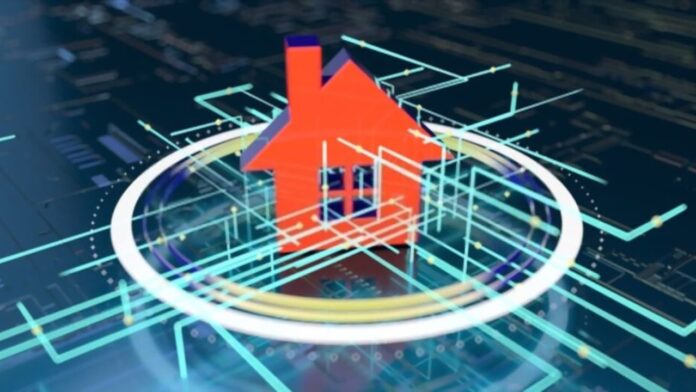The real estate market is undergoing a significant transformation, driven by advancements in blockchain development technology and the emergence of Non-Fungible Tokens (NFTs). NFTs, which gained widespread attention through the sale of digital art and collectibles, are now poised to disrupt the real estate industry. Blockchain, the underlying technology of NFTs, provides a secure and transparent platform for real estate transactions. Together, these innovations are expected to revolutionize the way we buy, sell, and invest in real estate. In this 2000-word essay, we will explore how NFTs and blockchain will bring about this transformation in the real estate market.
Understanding The Concept Of NFTs
Non-Fungible Tokens (NFTs) are unique digital assets that are indivisible and irreplaceable. They are created and stored on blockchain networks, such as Ethereum, and are characterized by their ownership verification and provenance tracking capabilities. NFTs can represent various forms of digital or physical assets, including art, music, videos, collectibles, and real estate.
Unique Ownership
NFTs are unique, making them ideal for representing real estate properties. Each real estate NFT represents a specific property or a share of a property, allowing for fractional ownership. This uniqueness ensures that ownership is verifiable and immutable on the blockchain, eliminating the need for complex and time-consuming paperwork.
Transparency And Security
Blockchain technology provides a secure and transparent ledger for NFT transactions. All real estate NFT transactions are recorded on a decentralized ledger, ensuring that ownership records are accurate and tamper-proof. This increases trust in the real estate market by reducing fraud and disputes.
Transferability
NFTs are highly transferable, making it easy to buy, sell, or trade real estate properties. The digital nature of NFTs allows for efficient and secure peer-to-peer transactions without the need for intermediaries, such as real estate agents or banks. This can significantly reduce transaction costs and streamline the buying process.
Blockchain Real Estate NFTs: The Future of Property Ownership
Fractional Ownership
One of the most promising applications of NFTs in the real estate market is fractional ownership. Real estate NFTs can be divided into smaller fractions, allowing multiple investors to own a share of a property. This makes real estate investment more accessible to a wider range of people, as they can invest in prime properties with smaller capital contributions.
Liquidity
Traditionally, real estate investments are illiquid, meaning that it can take a significant amount of time to sell a property and access the capital. Real estate NFTs have the potential to address this issue by enabling property owners to tokenize their assets and sell fractions of it quickly and easily. This increased liquidity can attract more investors to the real estate market.
Accessibility
NFTs have the potential to democratize the real estate market by allowing investors to participate in the market without the need for a large amount of capital. Through fractional ownership and easy trading, individuals can gain exposure to real estate investments that were previously out of reach.
Eliminating Intermediaries
The real estate industry has traditionally relied on intermediaries like real estate agents, brokers, and banks to facilitate transactions. These intermediaries often add complexity and costs to the process. Blockchain real estate nft platform development can streamline real estate transactions and reduce the need for these intermediaries.
Real Estate Agents
Real estate agents charge significant commissions for their services, often around 5% of the property’s sale price. NFTs can enable direct peer-to-peer transactions, reducing the reliance on agents and eliminating their fees.
Brokers
Real estate brokers often facilitate large property deals, especially in commercial real estate. By tokenizing properties into NFTs, the need for brokers can be reduced, and sellers can interact directly with potential buyers.
Banks and Mortgage Lenders
Traditional real estate transactions involve banks and mortgage lenders to finance purchases. Through blockchain-based smart contracts, NFTs can streamline the financing process, potentially reducing the cost and complexity of securing a mortgage.
Enhancing Transparency And Security
Real estate transactions involve a significant amount of paperwork, which can lead to inefficiencies and errors. NFTs and blockchain technology can enhance transparency and security throughout the real estate process.
Title Verification
Property titles and ownership records are critical in real estate transactions. With blockchain technology, title records can be securely stored and easily verified, reducing the risk of title disputes and fraud.
Smart Contracts
Blockchain-based smart contracts can automate various aspects of real estate transactions. These contracts can enforce the terms and conditions of a deal, including the release of funds upon the completion of certain milestones, such as inspections or repairs.
Due Diligence
Blockchain can provide a transparent and immutable record of a property’s history, including previous sales, renovations, and inspection reports. This information can aid buyers in their due diligence process, making it easier to assess the condition and value of a property.
Challenges And Concerns
While NFTs and blockchain have the potential to revolutionize the real estate market, there are challenges and concerns that need to be addressed.
Regulatory Hurdles
The real estate industry is heavily regulated in many countries, and integrating NFTs and blockchain technology may require significant changes in the legal framework. Regulatory bodies will need to adapt to accommodate the use of blockchain and NFTs in real estate transactions.
Security Risks
Blockchain technology is known for its security, but it is not immune to hacks and vulnerabilities. Ensuring the security of NFTs representing real estate properties is crucial to protect the interests of property owners and investors.
Adoption and Education
Widespread adoption of NFTs and blockchain in the real estate industry will require education and training for all parties involved, including buyers, sellers, and real estate professionals. It will take time for the industry to adapt to these new technologies fully.
Real-World Examples
Several real estate companies and startups have already begun experimenting with NFTs and blockchain in real estate transactions.
Property Tokenization
Companies like RealT and Propy have pioneered property tokenization, allowing users to invest in real estate through NFTs representing fractional ownership. These platforms make it possible for investors to own a share of properties and receive rental income.
NFT Auctions
Auctions of real estate NFTs have gained attention, particularly for unique or iconic properties. Notable examples include the sale of a digital house on Ethereum for over $500,000 and the auction of a luxury apartment in Miami Beach as an NFT.
Real Estate Marketplaces
Platforms like SuperWorld offer a virtual real estate marketplace where users can buy, sell, and trade digital real estate properties as NFTs. These virtual properties can be monetized through advertising, events, and more.
Conclusion
The real estate market is on the cusp of a significant transformation, driven by the integration of NFTs and blockchain technology. These innovations have the potential to democratize real estate ownership, increase liquidity, and streamline transactions while reducing the reliance on intermediaries. Despite the challenges and regulatory hurdles, the benefits of NFTs and blockchain in real estate are too promising to ignore. As the industry continues to adapt and innovate, we can expect a future where property ownership and investment are more accessible


